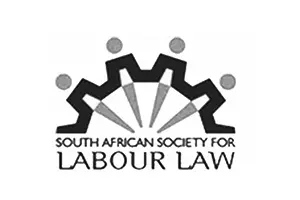
Unpacking the cannabis case of Enever v Barloworld
Employee’s on HIGH alert: Unpacking the cannabis case of Enever v Barloworld
Despite the landmark case of Minister of Justice and Constitutional Development and Others v Prince which legalised the use of cannabis in one’s own home, much uncertainty regarding the dos and don’ts of cannabis use lingered on. With the judgment in Enever v Barloworld, the Labour Court (hereafter “LC”) has finally provided some much sought-after clarity regarding the legal position of cannabis use in the employment sector/sphere.
In this case, Bernadette Enever (hereafter “the employee”) was employed as an office clerk for more than 13 years. Barloworld Equipment, a division of Barloworld South Africa (Pty) Ltd (hereafter “the employer”) is a company specialising in the supply of earthmoving equipment. Being a company within the civil engineering and mining industries, many health and safety measures were in place, including routine substance testing before being allowed to access the premises.
As is the case with many persons following the decision of Prince, the employee regularly smoked cannabis in the evenings, outside of working hours. This was because the employee had managed to wean herself off the prescription medication she had been taking prior to the decision in Prince, and instead began using cannabis oil and smoking rolled cannabis in the evenings. The employee motivated that same had assisted with her insomnia and anxiety which in turn improved her “bodily health, outlook and spirituality”.
When the employee tested positive at work, she was placed on “cleaning up” leave for a period of seven days, following which she was informed that she would be retested weekly until she returned a negative test result. The employee continued failing the weekly tests and after one month, she was charged with having breached the employer’s Alcohol and Substance Abuse Policy (hereafter “the policy”). The employer had in place, a zero-tolerance policy towards alcohol and drugs. It is however worth noting that the employee’s cannabis use had not impaired her ability to work.
At her disciplinary hearing, the chairperson held that despite her length of service, handing the employee a final written warning would be of no use as she “unequivocally refused to give up the consumption of cannabis”, and subsequently recommended her dismissal. The employee subsequently referred her dismissal to the LC on the grounds that she was unfairly discriminated against and that her dismissal was automatically unfair.
In practice, when an employee is charged with misconduct, there are certain factors which need to be considered, namely:
- Is there a rule or policy in place;
- Is the rule or policy reasonable;
- Has the rule or policy been applied consistently;
- Was the employee aware of the rule or could the employee have reasonably been expected to be aware of the rule; and
- Whether dismissal was the appropriate sanction for the act of misconduct.
When considering the above factors, the LC held that:
- the zero-tolerance policy on drugs and alcohol showed that there was a policy in place;
- in light of the dangerous environment, the employer was entitled to their zero-tolerance policy;
- the employer-led evidence that the policy had been applied consistently;
- it remained unchallenged that the employee was at all times aware of the policy; and
- given that the employee refused to stop using cannabis, a final written warning would serve no purpose and the sanction of dismissal was appropriate.
In response to the employee arguing that the employer ought to understand the difference between alcohol and cannabis, particularly the time needed to clear out of one’s system, the LC held that the employee had been treated in the same manner as other employees and that treating her differently would effectively place an unfair burden on the company. Additionally, the LC acknowledged that everyone was entitled to use cannabis recreationally and in their own space but held that the same applied to alcohol consumption yet employers need not take cognisance of the fact that alcohol was consumed in an employee’s personal time and space. Moreover, it was held that the fact that the employee was not impaired when she tested positive did not matter. What instead mattered was that her workplace had rules and she had failed to comply with them.
Regardless of whether or not one agrees with the decision of the LC, one thing is certain: a workplace policy is a foundation upon which any dismissal for misconduct is based. Without it, employers’ risk being unable to prove that their employees are aware of workplace rules. Contact Malcolm Lyons & Brivik Inc. should you require assistance with your employment law needs.

Lara Keil (Author)
Candidate Attorney at Malcolm Lyons & Brivik Inc.
LLM Candidate: Labour Law (UWC)
Malcolm Lyons and Brivik Attorneys are leading experts in the field of labour law in South Africa. To discuss whether you have a case, contact our offices below:
Telephone:
Cape Town Office:
Telephone: +27(0) 21 425-5570
E-mail: Cape.office@lyonsbriviklaw.com
Johannesburg Office:
Telephone: +27(0) 11 268 6697
Email: Jhb.office@lyonsbriviklaw.com
Contact form:
The current position on objections to the con/arb process
Con/arb process - The Commission for Conciliation, Mediation[...]
Out of time? Think again – The CCMA and its rules
By Lara Keil (Candidate Legal Practitioner) under the[...]
RAF’s lodgement requirements: Claimants further prejudiced
By Lara Keil (Candidate Legal Practitioner) under[...]
















